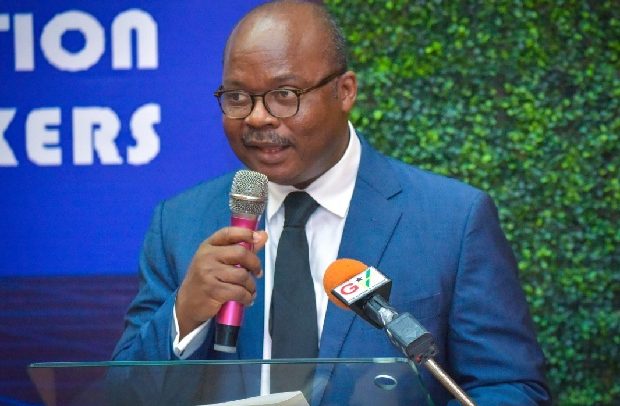Dr. Ernest Addison – Governor of BoG
GHANA’S STOCK of public debt shot to GH¢304.6 billion at the end of March 2021, compared with GH¢292.7 billion at the end of December 2020.
This was on account of the financing of the fiscal deficit in the first quarter done mainly from domestic sources.
Dr. Ernest Addison, Governor of the Bank of Ghana, who disclosed this to the media in Accra after the 100th Monetary Policy Committee (MPC) meeting, said of the total debt stock, domestic debt was GH¢163.6 billion (37.7 per cent of GDP), while the external debt was GH¢141.0 billion (32.5 per cent of GDP).
Banking
On the banking sector, he said from the beginning of the year to April 2021, new advances totaled GH¢10.5 billion, compared to GH¢10.9 billion for same period in 2020 while total restructured loans, executed by banks to cushion customers severely impacted by the pandemic stood at GH¢4.65 billion as at March 2021, representing some 9.8 per cent of industry loan portfolio.
Private Credit
On a year-on-year basis, he said annual growth in private sector credit as at April 2021 stood at 6.9 per cent compared with 17.9 per cent in April 2020.
Economic Activities
The BoG Governor said on the domestic front, economic activities have picked up strongly, evidenced by the high frequency economic indicators.
“Consumer and business confidence softened, triggered by the new revenue measures and recent instability in power supply which coincided with the survey period. These have served to dampen sentiments but are viewed as temporary and should improve in the near-term,” he averred.
Private Sector Credit
“Private sector credit growth still remains below pre-pandemic levels but we expect banks to respond to the observed emergence of increased demand for loans to support the expected pickup in economic activity,” he disclosed.
Assessment
“The banking sector remains sound and profitable, with adequate levels of capital and liquidity to withstand moderate to severe shocks. The industry has witnessed sustained growth in deposits, total assets, profits, and shareholder funds. The COVID–19 policy and regulatory response measures have somewhat helped to mute the effect of the pandemic on corporates and households and are being maintained in the near-term,” he noted.
Going further, he said there were signs that the execution of the budget for the first four months pointed to some improved revenue collections and expenditure containment to ensure real re-alignment to the consolidation path, adding that the fiscal data showed that fiscal revenues had significantly outpaced developments a year ago but slightly lags behind target.
“The gap in revenue performance viz-a-viz the budgeted target has been somewhat compensated for by expenditure containment measures.
“However, in the near-term, the committee noted risks in the fiscal outlook surrounding wage settlements, energy IPP payments, the potential for arrears build-up, potential for scaled-up expenditures associated with COVID-19 waves and mass vaccination efforts, and the implementation of the Ghana CARES programme, which would have to be carefully managed in a time consistent manner to minimise any deviation from the path of fiscal consolidation,” he added.
BY Samuel Boadi

